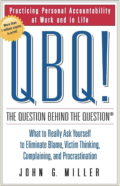When my kids were younger, they would often complain of not having anything to do. It was tempting to spring into action, and give them a project or some kind of entertainment to quiet their boredom. At some point in those early parenting years, we stumbled onto something together: Boredom is the gateway to creativity.
When we let our kids be bored, they found their imaginations. Cardboard boxes became space ships. Flour and sugar littered the kitchen because they baked cookies. The couch cushions were fashioned into the walls of a tent kingdom in the den.
I wonder what boredom might uncover in your life. What creativity might you fid if you said no to the many distractions.
______________________________________

